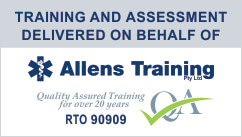First Aid Course – Northern Beaches. Do you know what to do?
First Aid and CPR training on the Northern Beaches has never been so Simple! Do you know what to do in an emergency? Can you help a loved one? Do you know how to do CPR or use a defibrillator?
Book now with Simple Instruction for the HLTAID001 Provide CPR. HLTAID003 Provide First Aid or HLTAID004 Provide an emergency first aid response in an education and care setting. We conduct all public courses at the Dee Why RSL and will also do private courses throughout Sydney. All Accredited training courses are nationally recognised and conducted under the auspices of Allens Training RTO 90909.
People are dying of cardiac arrest because the majority of the public have no idea how to use a defibrillator, St John Ambulance has said.
Most people in the UK do not have the knowledge to respond if someone’s heart stops beating, a survey by the charity found.
Nearly two-thirds admitted they would not know what to do if faced with a cardiac arrest and seven out of 10 people said they would not feel confident using a defibrillator, according to the YouGov poll.
Defibrillator
Defibrillators are increasingly common in public places CREDIT: TELEGRAPH
The first aid charity warned that lives were being put at risk as it launched its campaign to educate the public how to deal with a cardiac arrest.
More than half of people do not know where their nearest life-saving equipment is and 62 per cent wrongly believe a defibrillator would cause harm to a patient, the survey also found.
But up to seven out of 10 people who suffer a cardiac arrest could survive if they are treated with a defibrillator within the first five minutes, St John Ambulance said.
None of us want to find ourselves in a situation where we couldn’t save a loved one’s life
James Radford, director of St John Ambulance
The charity urged people to find their closest defibrillator, be ready to spot the signs of cardiac arrest, know how to perform CPR and remember that early defibrillation gives the best chance of survival – grouped under the acronym C.A.R.E.
James Radford, director of St John Ambulance, said its research showed Britain has “a long way to go” in educating the public.
He said: “None of us want to find ourselves in a situation where we couldn’t save a loved one’s life, any more than we’d want them to stand by helpless if we suffered a cardiac arrest.
“That’s why we are urging everybody to learn the four simple steps of C.A.R.E today; so that if the worst happens tomorrow, we can all act quickly and confidently, especially when every second counts.”
Defibrillators are increasingly available in busy public spaces.
Earlier this year a study in Sweden found defibrillator-carrying drones could dramatically boost survival after a trial showed they could reach patients four times faster than an ambulance.
